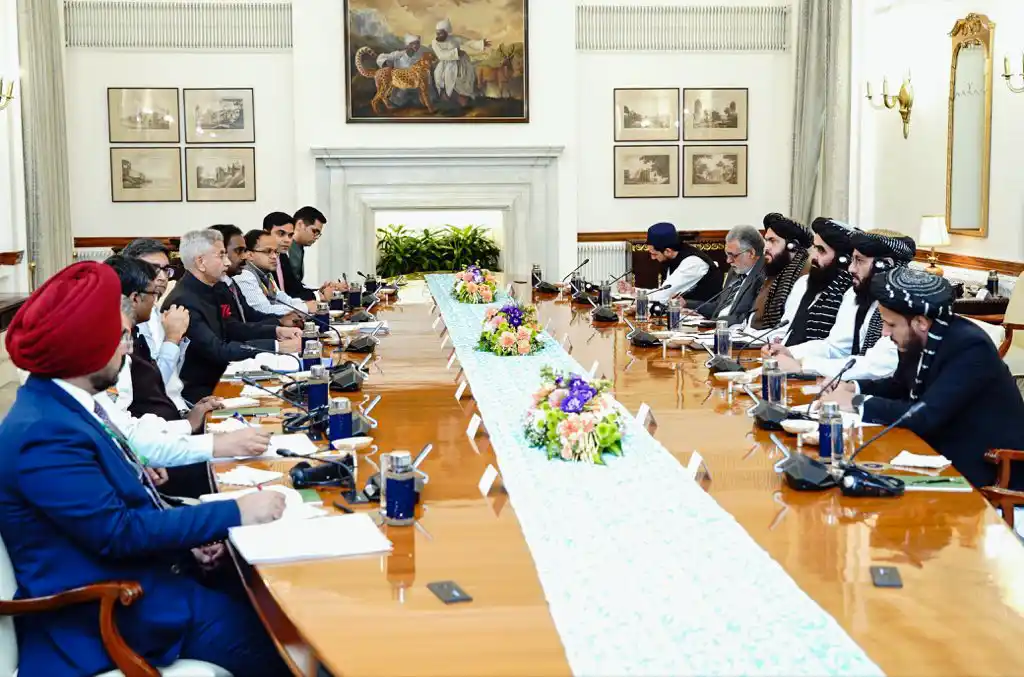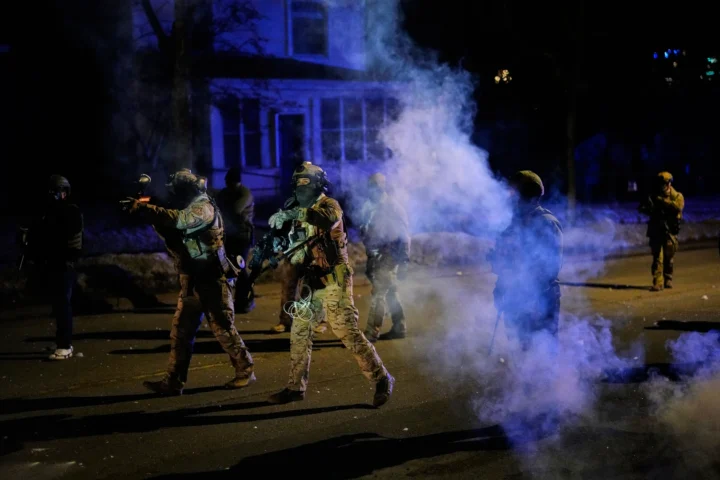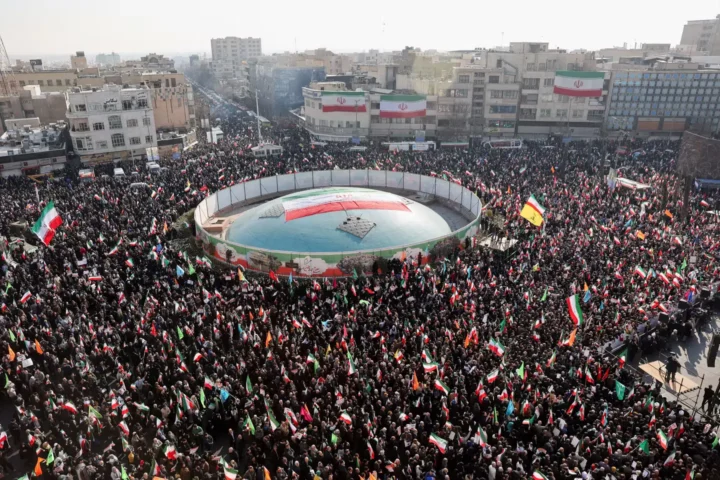India’s bold diplomatic overture toward Afghanistan’s Taliban government is reshaping the region’s geopolitical axis, even as Pakistan triggers cross-border chaos with alleged airstrikes in Kabul. The moment is historic—India has agreed to reopen its embassy in Kabul after four years and elevate ties with the Taliban regime, just as explosions, reportedly from Pakistani aircraft, rattled the Afghan capital during the Taliban foreign minister’s unprecedented visit to New Delhi. This rapidly transforming trilateral dynamic, playing out against the backdrop of bombings and diplomatic gambits, signals not just a recalibration of South Asia’s traditional alliances, but also the emergence of a new regional chessboard.
Seismic Shifts: India’s Calculated Pivot
India’s relationship with Afghanistan has traditionally been warm, but it outright refused to engage with the Taliban when they retook power in 2021, shutting down its embassy and limiting its presence to humanitarian and technical coordination. The recent Delhi visit of Taliban Foreign Minister Amir Khan Muttaqi is a diplomatic earthquake—marking the highest-level engagement since the Taliban’s return. India’s External Affairs Minister S. Jaishankar announced to the world that India’s technical mission in Kabul will be upgraded to a full-fledged embassy. In a striking statement, Jaishankar reaffirmed India’s support for Afghanistan’s sovereignty and invited Indian companies to invest in Afghanistan’s mining and infrastructure. For the Taliban government, the red-carpet welcome in Delhi and the handover of ambulances were a bid for regional legitimacy and economic lifelines.
This courtship is shaped as much by realism as by necessity. India’s earlier refusal to recognize the Taliban has been replaced by pragmatic engagement—a recognition that ignoring Afghanistan carries greater risks: an unstable neighbor, loss of leverage to rivals like China, and the unchecked emergence of new threats. The Taliban, for their part, seek broader recognition and economic recovery, and India promises humanitarian aid and technical assistance, all without official diplomatic recognition. It is a dialogue driven by mutual strategic interests rather than ideological affinity.
Pakistan’s Calculated Disruption
The backdrop to this diplomatic thaw is a relentless burst of violence. As Muttaqi arrived in India, Kabul was shaken by blasts widely attributed to Pakistani airstrikes aimed at Tehreek-e-Taliban Pakistan (TTP) militants allegedly hiding in Afghanistan. Pakistani jets reportedly targeted TTP chief Noor Wali Mehsud and other senior commanders in sites across Kabul, Paktika, and Khost, escalating a pattern of tit-for-tat strikes that have become more common in 2024 and 2025. Islamabad’s justification remains the claim that the Afghan Taliban harbor militants who threaten Pakistan, but these strikes are also a message—meant to project power and disrupt Afghanistan’s budding regional ties, especially with India.
Crucially, these airstrikes have only widened the diplomatic rift between Islamabad and the Taliban government, which accuses Pakistan of violating its sovereignty. The Taliban even responded with their own military actions along the border. Pakistan, once the Taliban’s chief backer, is now locked in a cycle of mutual suspicion and armed escalation. The Taliban are increasingly less willing to play Islamabad’s proxy, while Afghanistan’s overtures to India provide Kabul with new economic and political options, further undermining Pakistan’s regional influence.
The New Delhi-Kabul Equation: Unintended Consequences and Quiet Calculus
The evolving India-Afghanistan relationship exposes the frayed seams of Pakistan’s security-first foreign policy. Islamabad’s military interventions are aimed at preempting terrorist threats and dampening the rise of an unfriendly Kabul, but they may only accelerate Afghanistan’s diplomatic pivot toward India and distance from Pakistan. This adds fuel to wider regional contests, especially as both Islamabad and New Delhi seek greater influence in Central Asia.
India’s calculus is both strategic and opportunistic. By forging ties with the Taliban amid Pakistan’s eruptions and global reluctance to recognize the regime, New Delhi positions itself as a constructive regional stabilizer. The carrot of development assistance, connectivity corridors, and commercial investment comes without Western-style conditionality. Indian officials have stated this is not an endorsement of the Taliban’s policies—especially on women’s rights—but “engagement does not equal endorsement.” Instead, it is an insurance policy against increased Chinese influence in Afghanistan, unchecked extremism, and regional chaos.
Dangers and Dilemmas for Afghanistan
For the Taliban, Indian engagement enhances legitimacy and promises critical investment and humanitarian support. Yet, the cost may be a hardening of their relationship with Pakistan and further isolation from the West. Kabul is hedging: leveraging both India’s pragmatism and Pakistan’s necessity, while keeping other actors like China and Russia in strategic view. The violence in Kabul reveals the risks for all sides. Pakistan’s airstrikes are likely to breed more instability and strengthen the Taliban’s anti-Islamabad posture, while the Taliban’s inability to control all militant groups threatens to unravel any strategic gains from their new diplomatic equities.
Regional Reverberations: A Fragile but Pivotal Realignment
If India’s rapprochement with the Taliban holds, the regional landscape will be dramatically reconfigured. Afghanistan stands at the confluence of Indian outreach, Pakistani anxiety, and the broader great-power competition unfolding from Iran to China. The United States, having relinquished its Afghan footprint, watches as others step into the vacuum.
India’s gamble is that its engagement can stabilize Afghanistan while weakening anti-India extremist groups—a bet neither guaranteed nor without risk. For Kabul, this is an opportunity to diversify its alliances and reinforce sovereignty, but at the risk of greater confrontation with Pakistan. And for Pakistan, airstrikes may deliver short-term tactical objectives but at the cost of long-term regional isolation and diplomatic losses.
The next chapter of South Asian geopolitics will be written in Kabul as much as New Delhi and Islamabad—and in the silence after the bombs, the world will measure who holds the decisive cards.
This article originally appeared in the print edition of The Telegraph, October 12, 2025.











